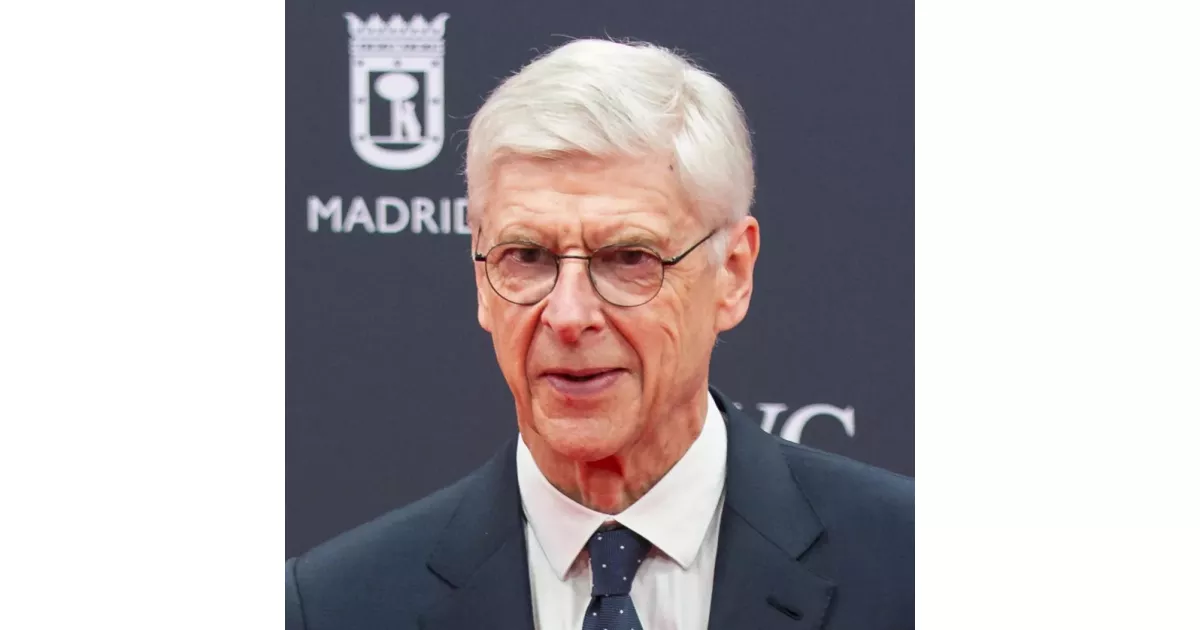Arsène Wenger is a French former football manager and player, currently FIFA's Chief of Global Football Development. He managed Arsenal from 1996 to 2018, becoming the club's longest-serving and most successful manager. Wenger significantly impacted English football by modernizing scouting, training, and diet practices, contributing to Arsenal's success and the globalization of the sport.
October 1944: Wenger's Father Conscripted into German Army
In October 1944, Arsène Wenger's father, Alphonse, was conscripted into the German Army and sent to fight on the Eastern Front, as Alsace-Lorraine was annexed by Germany at the time.
October 1949: Arsène Wenger's Birth
In October 1949, Arsène Charles Ernest Wenger was born. He later became a significant figure in football management, particularly known for his tenure at Arsenal.
October 1949: Arsène Wenger Born in Strasbourg
On 22 October 1949, Arsène Charles Ernest Wenger was born in Strasbourg, Alsace, as the youngest of three children to Alphonse and Louise Wenger.
1969: Wenger Recruited to Mutzig
In 1969, Arsène Wenger was recruited to Mutzig, a nearby third division club, marking a significant step in his early football career.
1971: Wenger Enrolls at the University of Strasbourg
In 1971, Arsène Wenger enrolled at the Faculté des sciences économiques et de gestion at the University of Strasbourg to study politics and economics.
1971: Vauban Club Formed
In 1971, Vauban, the amateur club Arsène Wenger would later play for, was formed and made steady progress up the French football league system.
1973: Wenger Joins Mulhouse
In 1973, Arsène Wenger joined the semi-professional club Mulhouse, balancing his football career with his education.
1974: Mulhouse Beats Nancy to Avoid Relegation
In their final game of the 1974-75 season, Mulhouse, managed by Paul Frantz, beat Nancy to avoid relegation, after which Frantz resigned. Wenger also decided to leave.
1975: Wenger Signs for ASPV Strasbourg (Vauban)
In 1975, Arsène Wenger rekindled his friendship with Hild and signed for amateur club ASPV Strasbourg (Vauban).
1976: Wenger Selected for National French Students Squad
In 1976, Arsène Wenger was selected to represent the national French students squad, though he did not participate in the World Students Championship due to injury.
1979: RC Strasbourg Wins League
At the end of the 1978-79 season, RC Strasbourg won the league, but Arsène Wenger did not join in the celebrations as he was preoccupied with the youth team. He made his final appearance for the senior side in 1979.
1981: Wenger Obtains Manager's Diploma
In 1981, Arsène Wenger obtained a manager's diploma, marking a significant step in his transition from playing to managing football teams.
1983: Wenger Becomes Assistant at Cannes
In 1983, Arsène Wenger moved to Ligue 2 club Cannes and became Jean-Marc Guillou's assistant, taking on responsibilities such as collecting information about opposition teams and instilling discipline through training sessions.
1984: Wenger Accepts Offer to Manage Nancy
In 1984, Arsène Wenger accepted Aldo Platini's offer to become manager of Nancy, advancing his managerial career.
1985: Nancy's Bottom-Half Finish
In 1985, Nancy's bottom-half finish proved a false dawn for the club.
1986: Nancy Finishes 18th, Retains League Status
In the 1985-86 season, Nancy finished 18th, which meant they had to win a play-off match to avoid relegation. They retained their league status with a 3-2 aggregate win against Mulhouse.
1987: Wenger Joins Nancy
In 1987, Arsène Wenger joined Nancy, a football club, initiating a new phase in his managerial career.
1987: Wenger Confirmed as Monaco Manager
In 1987, Arsène Wenger was confirmed as the manager of Monaco after being permitted to leave Nancy by mutual consent.
1988: Monaco Wins League in Wenger's Debut Season
In 1988, Monaco won the league in Arsène Wenger's debut season as manager, finishing six points ahead of runners-up Bordeaux.
1988: Monaco Wins League Championship
In 1988, Monaco, under Arsène Wenger's management, won the league championship, marking a significant achievement in his managerial career.
1991: Wenger worked with Roger Mendy
During his final years at Monaco, Arsène Wenger worked with Roger Mendy, a Senegalese defender regarded in 1991 as one of the ten best African footballers by France Football, and Nigerian Victor Ikpeba, a forward who earnt the accolade of African Player of the Year.
September 1994: Wenger Dismissed as Monaco Manager
On 17 September 1994, Arsène Wenger was dismissed as Monaco manager due to a poor start to the 1994-95 season, with the team in 17th spot in the table.
December 1994: Wenger Agrees to Manage Nagoya Grampus
In December 1994, Arsène Wenger agreed to become the manager of Nagoya Grampus, on a two-year contract worth ¥75m annually.
1994: Tottenham Finished Above Arsenal
In 1994, the 1994–95 FA Premier League season, was the last time before April 30th 2017 that Tottenham finished above Arsenal in the Premier League.
March 1995: Wenger assembles his squad at Nagoya Grampus
In March 1995, as the new J.League season commenced, Arsène Wenger assembled his squad and backroom staff for Nagoya Grampus. He hired Boro Primorac as his assistant, and brought in players such as Alexandre Torres, Franck Durix, and Passi. In response to the team's poor performance, Wenger altered his managerial style, demanding more from his players.
1995: Wenger Coaches Nagoya Grampus Eight
In 1995, Arsène Wenger became the coach of J.League side Nagoya Grampus Eight, marking his first experience managing a team outside of Europe.
1995: Arsenal board rebuffs Dein's suggestion to appoint Wenger
In 1995, David Dein suggested to the Arsenal board that they appoint Arsène Wenger, but they rebuffed his suggestion. However, concerns over George Graham's successor Bruce Rioch meant they were more open-minded about hiring Wenger since his stint in Japan.
January 1996: Nagoya Grampus wins the Emperor's Cup
In January 1996, Arsène Wenger guided Nagoya Grampus to their first piece of silverware, as they defeated Sanfrecce Hiroshima to win the Emperor's Cup.
August 1996: Arsenal dismisses Bruce Rioch
In August 1996, Arsenal dismissed Bruce Rioch as club manager, paving the way for a new appointment.
August 1996: Wenger's farewell speech at Nagoya Grampus
On August 28, 1996, Wenger managed Nagoya for the final time and delivered a farewell speech, thanking the fans in Japanese.
September 1996: Red Cards Begin to Accumulate for Wenger's Arsenal
From September 1996 to February 2014, Arsène Wenger's Arsenal received 100 red cards, highlighting issues with discipline within the team despite their success.
September 1996: Poor Disciplinary Record
In September 1996, Arsène Wenger faced scrutiny for Arsenal's poor disciplinary record.
September 1996: Reaction to Wenger's appointment at Arsenal
In September 1996, Arsène Wenger's arrival at Arsenal was met with confusion by some players, supporters, and media, due to his relative obscurity in English football. Unlike his predecessors, Wenger was given control over transfers, contracts, and training sessions. Wenger made steps to change the drinking culture that afflicted Arsenal, promoted pasta as the pre-match dish, encouraged boiled chicken instead of red meat and discouraged junk food. Players received optional vitamin injections and Creatine.
September 1996: Wenger is unveiled as Arsenal manager
On September 22, 1996, Arsène Wenger was unveiled as Arsenal manager after Nagoya Grampus granted him his release. Speculation grew that it would be Wenger once the club signed French midfielders Patrick Vieira and Rémi Garde.
October 1996: Wenger officially assumes role at Arsenal
On October 1, 1996, Arsène Wenger officially assumed the role as Arsenal manager, becoming the first Frenchman to manage in the Premier League.
October 1996: Wenger's first match as Arsenal manager
On October 12, 1996, Wenger's first match was a 2–0 away victory over Blackburn Rovers. However, he interfered in Arsenal's UEFA Cup defeat to Borussia Mönchengladbach on 24 September, nine days prior to taking charge of the club. This particular approach of management resonated with the other players, who were sceptical of his ideas at first. The English players often set up pranks on Wenger to relieve hostility and nicknamed him "Inspector Clouseau", due to his clumsy nature.
November 1996: Wenger refutes malicious rumors
In November 1996, malicious rumours surfaced concerning Wenger's private life, which he strongly refuted at a press meeting.
1996: Wenger Becomes Arsenal Manager
In 1996, Arsène Wenger became the manager of Arsenal, marking the beginning of a long and impactful career with the club.
1996: Wenger Presided Over Rice's Caretaker Duties
In 1996, during a match against Borussia Mönchengladbach, Wenger presided over Rice's caretaker duties at Arsenal, and ordered the team to switch from their preferred 3–5–2 formation to 4–4–2. The tactical change did not have its desired effect, as Arsenal lost the game.
1996: Arsenal Failed to Finish in the Top Four
In 1996, the 1996–97 FA Premier League season, was the last time before May 2017 that Arsenal failed to finish in the top four.
February 1997: Wenger vetoes Hartson's move to West Ham
In February 1997, Arsène Wenger vetoed John Hartson's move to West Ham United.
February 1997: Wenger rules out Arsenal's title chances
In February 1997, after a period of poor form, Arsène Wenger ruled out his team's chances of winning the Premier League title.
August 1997: Publication of Shōsha no Esupuri
In August 1997, Arsène Wenger's book on football management, Shōsha no Esupuri (The Spirit of Conquest), was published in Japan.
1997: Arsenal struggles in November
Arsenal struggled in November 1997. Defeat at home to Blackburn Rovers left the club in sixth position before Christmas and seemingly out of contention for the title. Wenger called for an urgent team meeting, where "home truths were spoken, fingers pointed, players were geed up."
1997: Birth of Daughter Léa
In 1997, Arsène Wenger's daughter, Léa, was born.
1997: Beginning of Rivalry with Alex Ferguson
In 1997, Arsène Wenger's rivalry with Sir Alex Ferguson began, marking the start of a long-standing and well-known dispute between the two managers.
March 1998: Arsenal defeats Manchester United at Old Trafford
In March 1998, Arsenal defeated Manchester United at Old Trafford with a goal from Overmars, setting up a title clash between the two teams. Wenger maintained it was possible for Arsenal to win the league.
1998: Arsenal Wins Premier League and FA Cup Double
In 1998, Arsène Wenger guided Arsenal to a Premier League and FA Cup double, marking a significant achievement and establishing him as a successful manager in English football.
1998: Double-Winning Team as Model of Integration
In 1998, Arsène Wenger's double-winning team was described as "a model of racial and multicultural integration", being the first truly globalised team.
1998: Wenger Sanctions Wright's transfer to West Ham
In the Summer of 1998, Wenger sanctioned Ian Wright's transfer to West Ham and made Anelka his first-choice striker ahead of the 1998–99 season.
January 1999: Arsenal signs Nwankwo Kanu
In January 1999, needing to strengthen their attacking options, Arsenal signed Nwankwo Kanu.
February 1999: Offered Sheffield United a Replay
In February 1999, Arsène Wenger offered Sheffield United a replay of their FA Cup match due to a controversial goal. Arsenal won the replayed match 2-1.
August 1999: Anelka joins Real Madrid
In August 1999, Nicolas Anelka joined Real Madrid, prompting Wenger to sign Davor Šuker and Thierry Henry to bolster Arsenal's forward line. Wenger used a portion of the proceeds generated through the Anelka sale to fund the build of the Arsenal Training Centre
1999: Predominantly Studying Football Matches
As of 1999, Arsène Wenger spent his leisure time predominantly studying football matches.
August 2000: Charged with Threatening Behaviour
In August 2000, Arsène Wenger was charged with "alleged threatening behaviour and physical intimidation" towards a fourth official, resulting in a fine and a touchline ban, which was later appealed and reduced to a fine.
2000: UEFA Cup Final Loss
In 2000, Arsenal exited the Champions League at the group stage and dropped to the UEFA Cup where they reached the final, only to lose to Galatasaray on penalties. In the league, Arsenal finished as runners-up, 18 points behind Manchester United.
2001: Wenger Deployed an Unconventional 4-4-2
From 2001, Wenger deployed an unconventional 4–4–2 with a greater emphasis on attack and movement; his teams between 2001 and 2004 were dominant on the left flank.
2001: Wenger Speaks About Bribery and Corruption Impact
In 2001, Arsène Wenger said that the impact of bribery and corruption had influenced his decision to leave France, as Marseille were found guilty of match fixing in 1994.
2001: Squad Changes and New Signings
In 2001, Wenger made changes to the squad by signing Richard Wright, Francis Jeffers, Giovanni van Bronckhorst, and Sol Campbell. These additions aimed to strengthen the defense and midfield.
October 2002: Loss to Everton Ends Unbeaten Run
In October 2002, Arsenal's loss to Everton ended a run of four matches without a win, halting their momentum in the league.
2002: Arsenal Wins Another League and Cup Double
In 2002, Arsène Wenger led Arsenal to another League and FA Cup double, further cementing his reputation as a top manager.
2002: Awarded Legion of Honour
In 2002, Arsène Wenger was awarded France's highest decoration, the Legion of Honour.
2002: Arsenal's League and FA Cup Double
In 2002, Wenger led Arsenal to a League and FA Cup double. The crowning moment was the win against Manchester United at Old Trafford. Four days earlier, Arsenal beat Chelsea 2–0 in the 2002 FA Cup Final. The team scored in every league fixture and were unbeaten away from home.
2002: Graham Taylor on Wenger's Contribution to Football
In 2002, former Watford manager Graham Taylor said that Arsène Wenger's biggest contribution to football was "getting across the idea that players have to prepare right and look after themselves".
March 2003: Title Race Shifts to Manchester United
By March 2003, Arsenal's eight-point lead over Manchester United had diminished, shifting the title race in United's favor, especially after a draw against Bolton Wanderers.
2003: Residency in Totteridge, London
As of 2003, Arsène Wenger resided in Totteridge, London.
2003: Criticism of Arsenal's Discipline
In 2003, Arsenal's disciplinary record was heavily criticised, described as a "crime-wave".
2003: Appointed Honorary Officer of the Order of the British Empire (OBE)
In the 2003 Birthday Honours, Arsène Wenger was appointed an Honorary Officer of the Order of the British Empire (OBE) for services to football.
2003: Departure Gift from Arsenal
On May 6th, Wenger received a standing ovation before the game and was gifted the gold mini-replica Premier League trophy he won during the 2003–04 Invincibles season as a departing gift from Arsenal.
March 2004: Arsenal's Win Likened to Ajax
In March 2004, Arsenal's 5–1 win against Portsmouth was likened to "the magnificently fluid Ajax of the early 70s", and greeted with a standing ovation by the opposition supporters.
October 2004: Arsenal's Unbeaten Run Ends
In October 2004, Arsenal's record-setting 49-match unbeaten run in the league came to an end, marking the conclusion of an era of dominance.
October 2004: "Pizzagate" Incident at Old Trafford
In October 2004, after Manchester United ended Arsenal's 49-game unbeaten Premier League run, Cesc Fàbregas threw a pizza at the opposition in the tunnel during the "Pizzagate" incident at Old Trafford. Wenger accused Ruud van Nistelrooy of being "a cheat" and was fined by the FA.
October 2004: Unbeaten Run Ends Against Manchester United
On October 24, 2004, Arsenal's 49-game unbeaten league run ended with a 2–0 defeat at Manchester United.
2004: Profit on Transfers
Between 2004 and 2009, Arsène Wenger made an average profit of £4.4 million per season on transfers.
2004: Wenger Deployed an Unconventional 4-4-2
From 2001, Wenger deployed an unconventional 4–4–2 with a greater emphasis on attack and movement; his teams between 2001 and 2004 were dominant on the left flank.
2004: Football Consultant for TF1
From 2004, Arsène Wenger acted as a football consultant for French television station TF1.
2004: Arsenal's Injury Record
From 2004–05 to 2014–15, Arsenal's players lost 13,161 days through injury, the most in the Premier League.
2004: Premier League's Fair Play League
In 2004, Arsenal topped the Premier League's Fair Play League for sporting behaviour.
2004: Arsenal Wins League Title Unbeaten
In 2004, Arsène Wenger's Arsenal won the league title without losing a single match, an unprecedented feat in modern English football.
2004: Arsenal Team Described as Devastating
In 2004, pundit Alan Hansen described Arsène Wenger's Arsenal team as "quite simply the most fluid, devastating team the British Isles has seen", highlighting the change in the club's football style.
2004: Signing of Flamini
In 2004, the decision to sign Flamini came about as Arsène Wenger was looking at statistics to find an understudy to Vieira.
2004: Creatine usage stopped due to side-effects
Until 2004, Arsène Wenger encouraged his players to take Creatine for increased stamina, later stopping when he noticed side-effects.
February 2005: Arsenal Fields Team with No British Players
On February 14, 2005, Arsenal fielded a 16-man squad with no British players for the first time in the club's history, prompting concerns about the impact on English football.
July 2005: Vieira Sold to Juventus
In July 2005, Wenger sold Vieira to Juventus due to the emergence of Cesc Fàbregas and the feeling that the two players were ineffective as a midfield pairing.
October 2005: "Wenger Day" at Highbury
During Arsenal's valedictory campaign at Highbury, supporters showed appreciation by holding a "Wenger Day" on Arsène Wenger's 56th birthday, October 22, 2005, during a league match against Manchester City.
November 2005: War of Words with José Mourinho
During November 2005, Arsène Wenger became embroiled in a war of words with Chelsea manager José Mourinho, who accused Wenger of having an "unprofessional obsession" with Chelsea. Mourinho later apologised for his "voyeur" comment, which Wenger accepted.
2005: Wenger Adopted the 4-5-1 System
By the 2005–06 season, clubs in England were increasingly in favour of using the 4–5–1 system. Wenger, having earlier suggested he would never resort to a negative system, later adopted the formation for Champions League matches.
2005: Premier League's Fair Play League
In 2005, Arsenal topped the Premier League's Fair Play League for sporting behaviour again.
2005: Arsenal's Disciplined Performance
In 2005, Wenger assembled teams to produce disciplined performances, markedly the 2005 FA Cup Final against Manchester United.
November 2006: Wenger Rules Out Title Chances
In November 2006, following a defeat to Bolton, Wenger ruled out Arsenal's chances of winning the league title for the 2006-07 season.
2006: Second in Fair Play League
In 2006, Arsenal finished second in the Premier League's Fair Play League.
2006: Arsenal's Youth Investment
In 2006, Arsenal moved to the Emirates Stadium, and Arsène Wenger prioritized investing in youth players rather than purchasing experienced players, aiming to create a unique "identity" for the club. This involved developing players with a love for the club, though the youth setup's success didn't match the late 1990s and early 2000s.
2006: Arsenal Reaches Champions League Final
In 2006, Arsène Wenger guided Arsenal to their first-ever Champions League final, marking a significant milestone for the club.
February 2007: League Cup Final Defeat to Chelsea
In February 2007, Arsenal's youthful team lost the League Cup final to Chelsea 2–1, marking a setback in their campaign.
April 2007: Dein Leaves Arsenal
In April 2007, Dein left Arsenal due to "irreconcilable differences" about the club's future, which Wenger described as a "sad day for Arsenal."
June 2007: Henry Leaves Arsenal
In June 2007, club captain Henry left Arsenal, which led to uncertainty over Wenger's position at the club.
September 2007: Wenger Signs Contract Extension
In September 2007, Wenger signed a new three-year contract extension, committing himself to Arsenal.
October 2007: Unveiling of Bronze Bust
In October 2007, a commissioned bronze bust of Arsène Wenger was unveiled as a tribute by the board of directors of Arsenal at the club's annual general meeting.
December 2007: Unbeaten Run Ends Against Middlesbrough
In December 2007, Arsenal's run of 22 league matches unbeaten ended with a defeat to Middlesbrough.
2007: Wenger Made Profit on Transfers
A survey in 2007 found Arsène Wenger was the only Premier League manager to have made a profit on transfers.
2007: FA Investigation and Fine
Following the 2007 Football League Cup Final, Arsène Wenger called a linesman a liar, leading to an investigation by the FA, a fine, and a warning.
February 2008: Eduardo Injury
On February 23, 2008, a career-threatening injury to striker Eduardo against Birmingham City acted as a turning point in Arsenal's season.
October 2009: Wenger Becomes Longest-Serving Manager
In October 2009, Wenger surpassed George Allison to become Arsenal's longest-serving manager, marking a significant milestone in his career.
2009: Praise for Financial Fair Play
Arsène Wenger's loyalty towards financial fair play and handling of Arsenal's debt since their stadium move has earnt him praise.
2009: Rivalry with Ferguson Becomes Respectful
By 2009, Arsène Wenger noted that his rivalry with Sir Alex Ferguson had become "respectful" as Arsenal had ceased competing with Manchester United for major honors.
2009: Ferguson's Criticism of Wenger's Transfer Policy
In 2009, Sir Alex Ferguson criticized Arsène Wenger's transfer policy for lacking balance and needing defensive players. Wenger's player recruitment was also questioned for their character and leadership capabilities.
2009: Wenger Instituted a Fluid 4-3-3 Formation
In 2009–10, Arsène Wenger instituted a fluid 4–3–3 formation to benefit from Fàbregas' creativity, and since the player's departure, had remodelled the system to 4–1–4–1 and 4–2–3–1.
2009: Top Four in Fair Play Table
Up to 2009, Arsenal consistently featured in the top four of the Premier League's Fair Play table.
August 2010: Wenger Signs New Contract
In August 2010, Wenger signed a further three-year contract to continue his managerial career at Arsenal.
2010: Privacy Appeal
In 2010, Arsène Wenger appealed for privacy after a British newspaper alleged he had an affair.
2010: Nagoya wins their first title
In 2010, Nagoya, under Dragan Stojković, won their first title.
March 2011: Improper Conduct Charge by UEFA
In March 2011, Arsène Wenger was charged with improper conduct by UEFA for comments made to a referee, resulting in a fine and suspension from UEFA club competitions, which was later extended for communicating with Arsenal's bench during a ban.
August 2011: Arsenal Trounced by Manchester United
On August 29, 2011, Arsenal suffered an 8–2 defeat to Manchester United, representing their worst defeat in 115 years.
2011: Football League Cup Final Defeat
In 2011, Arsenal lost the Football League Cup Final to Birmingham City due to a mix-up between Szczęsny and Koscielny.
2011: Reverting to Proven Talent
Since the 2011–12 season, Arsène Wenger reverted to buying proven talent and blending experience with youth in domestic cup competitions due to increased revenue from the Emirates move and new sponsorship deals. This allowed Arsenal to make marquee signings.
August 2012: Van Persie Joins Manchester United
In August 2012, Robin van Persie joined Manchester United after growing disillusioned with Arsenal's transfer policy. Arsenal purchased Olivier Giroud and Lukas Podolski in anticipation of the sale.
November 2012: Arsenal Falls Behind Manchester United
By November 2012, Arsenal struggled to find consistency and were 12 points behind leaders Manchester United in the league.
2013: Arsenal's Defeat and Transfer Activity
In 2013, Arsenal began the season with a home defeat to Aston Villa. This prompted criticism of the club's transfer inactivity. However, in the final week of the transfer window, Wenger re-signed Flamini and sanctioned the club record signing of Mesut Özil from Real Madrid.
2013: Compromising Attack-Minded Principles
In 2013, defeats in the big games during 2013–14 led to Wenger compromising his attack-minded principles in favour of keeping it tight.
February 2014: Arsenal Reaches 100 Red Cards Under Wenger
Between September 1996 and February 2014, Arsène Wenger's Arsenal received 100 red cards, highlighting disciplinary issues within the team.
February 2014: 100 Red Cards
By February 2014, Arsenal had received 100 red cards under Arsène Wenger's management.
October 2014: Touchline Spat with José Mourinho
In October 2014, during a Premier League match between Arsenal and Chelsea, Arsène Wenger was involved in a touchline spat with José Mourinho, later apologizing for his behavior.
2014: Wenger Acquired Shad Forsythe
In 2014, Arsène Wenger acquired the help of fitness coach Shad Forsythe to solve the problem; statistics revealed a year later that Arsenal's average injury length dropped more than 25% in Forsythe's first season.
2014: End of TF1 Consultancy
In 2014, Arsène Wenger's role as a football consultant for French television station TF1 concluded.
May 2015: Wenger won his sixth FA Cup
In May 2015, Arsène Wenger won his sixth FA Cup, equalling George Ramsay as the most successful manager in the competition's history. He also guided the club to an improved third place in the league that season.
2015: Legal Separation
In 2015, Arsène Wenger and Annie Brosterhous legally separated.
May 2016: Opening of Stade Arsène Wenger
In May 2016, the Stade Arsène Wenger was officially opened near Strasbourg, serving as the new home of USL Dippinheim with a capacity of 500 people.
2016: Wenger Switched to a 3-4-3 Formation
During the latter half of the 2016–17 Premier League season, Wenger switched to a 3–4–3 formation, similar to Antonio Conte's Chelsea first used against Middlesbrough in a 2–1 win.
2016: Arsenal Financed Moves for Granit Xhaka and Shkodran Mustafi
In 2016, Arsenal financed moves for Granit Xhaka and Shkodran Mustafi for a combined £65 million. Wenger hoped to guide the club to their first league title win in over thirteen years the following season.
2016: Criticism of Wenger's Methods
In 2016, Henry Winter reasoned that Arsène Wenger's methods no longer gave him an advantage over others, and he needed to adapt or resign.
2016: Role at beIN Sports
Since 2016, Arsène Wenger has worked for beIN Sports.
2017: Wenger brought in Alexandre Lacazette and Sead Kolašinac
In 2017, Arsène Wenger brought in Alexandre Lacazette for £45m and Sead Kolašinac on a free transfer. On 6 August, Wenger won his seventh FA Community Shield as manager.
January 2018: Sánchez Transferred to Manchester United
In January 2018, Sánchez voiced his desire to depart, and Wenger sanctioned a transfer to Manchester United, whereby Arsenal received Henrikh Mkhitaryan in a swap-deal. Later that month, he signed Pierre-Emerick Aubameyang for a club-record fee of £56 million.
2018: Wenger Departs from Arsenal
In 2018, Arsène Wenger concluded his 22-year tenure as the manager of Arsenal, marking the end of an era for the club. He subsequently retired from football management.
November 2019: Wenger became FIFA's Chief of Global Football Development
In November 2019, Arsène Wenger became FIFA's Chief of Global Football Development, overseeing the growth and development of the sport. He also took senior authority as a member of the Football and Technical Advisory Panels involved in IFAB review.
2019: Wenger signed contract extension
Four days following the FA cup win on 27th May, Wenger signed a contract extension until 2019.
October 2020: Publication of My Life in Red & White
On October 2020, Arsène Wenger's second book, My Life in Red & White: My Autobiography, was published.
July 2023: Unveiling of Statue Outside Emirates Stadium
In July 2023, Arsenal unveiled an official statue of Arsène Wenger holding the "Invincible" Premier League trophy outside the Emirates Stadium, commemorating him alongside other club legends.
Mentioned in this timeline
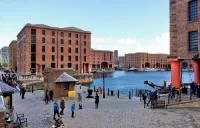
Liverpool is a port city and metropolitan borough located in...

Christmas is an annual festival celebrated on December th commemorating...
Germany officially the Federal Republic of Germany is a Central...
Japan is an East Asian island country in the Pacific...

Football encompasses a variety of team sports centered on kicking...
Monaco a sovereign city-state on the French Riviera is the...
Trending
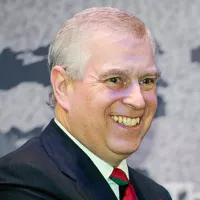
8 minutes ago Prince Andrew faces exile at Sandringham after losing title; future uncertain.

2 hours ago Ronda Rousey criticizes Joe Rogan's fighting experience and reflects on fan reactions.

2 hours ago Cindy Crawford shines at the 2025 LACMA Art + Film Gala.
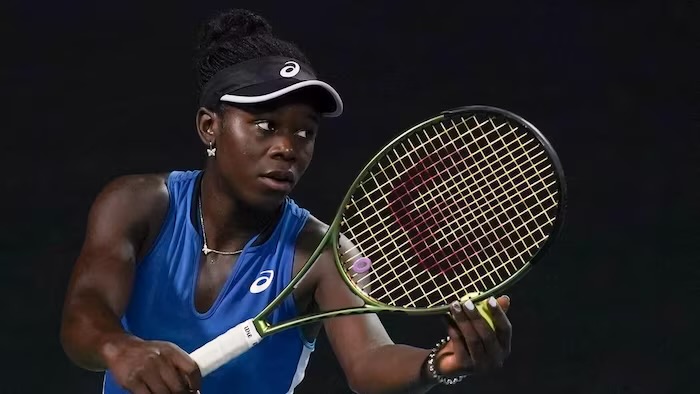
3 hours ago Victoria Mboko Dominates, Reaches Hong Kong Open Final After Fernandez Victory
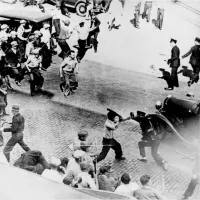
3 hours ago Amazon Cancels Lord of the Rings MMO Amidst Struggle to Compete with Steam

1 day ago Kendall Jenner frustrated by Caitlyn's views; Caitlyn reunites with kids on Kardashians.
Popular
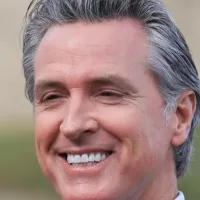
Gavin Newsom is an American politician and businessman currently serving...

Candace Owens is an American political commentator and author known...
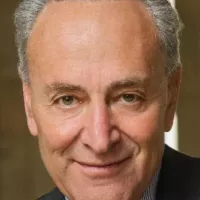
Chuck Schumer is the senior United States Senator from New...

Doug Ford is a Canadian politician and businessman currently serving...

XXXTentacion born Jahseh Dwayne Ricardo Onfroy was a controversial yet...
Turning Point USA TPUSA is an American nonprofit organization founded...
